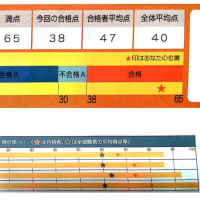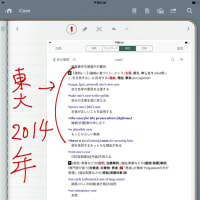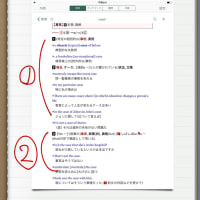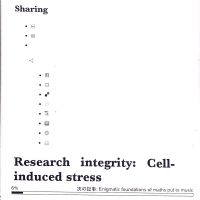TIMEをみると、Forget IQ: The Emerging Science of Collective Intelligence
という記事がある。
読みやすくて興味深いテーマだ。来年、どこかの大学で使われそうな気がする。
Assembling a team is an art, one that involves intuitive thinking and ― let's face it ― a lot of guesswork. A new study, however, is transforming this critical task into a science.
Though knowledge on group intelligence is still in its nascent stages, it's long been known that an individual's intelligence speaks volumes. Past studies have shown that it can predict everything from educational attainment to how likely a person will end up being an unwed teen parent. When British psychologist Charles Spearman introduced the concept of general intelligence in 1904, he was likely just as emphatic about the word intelligence as he was with the word general, as he saw intelligence as a measure that can predict performance in multiple domains. In other words, consistency is key. (More on Time.com: It's True: We Shop Till it Hurts)
Cut to 2010, and group intelligence is fast emerging as the next frontier in this field. Schools and companies are increasingly learning the value of teamwork, and researchers like Carnegie Mellon University organizational psychologist Anita Williams Woolley are searching for ways to boost group performance.
In one crucial development, Woolley and several collaborators found that a group's collective intelligence can indeed be measured and used to predict performance in different realms. She worked with MIT researchers Christopher Chabris, Alexander Pentland, Nada Hashmi and Thomas Malone for the study, which was recently published in the journal Science. (More on Time.com: Is Genius Born or Can It Be Learned?)
“In the same way that it is for individuals, there is this consistency that characterizes how groups perform,” Woolley says. “We saw that groups who did well in one task did well in others too.”
With love and fear, Alzheimer's youngest caregivers watch over parents
The circumstances creating these young caregivers have several factors, she said. About 10 percent of Alzheimer's cases begin to show symptoms before age 55, according to the association. That means adults in their 30s, 40s or 50s grapple with the disease while their children are younger. Parents having children later in life could be another factor, Drew said.
という記事がある。
読みやすくて興味深いテーマだ。来年、どこかの大学で使われそうな気がする。
Assembling a team is an art, one that involves intuitive thinking and ― let's face it ― a lot of guesswork. A new study, however, is transforming this critical task into a science.
Though knowledge on group intelligence is still in its nascent stages, it's long been known that an individual's intelligence speaks volumes. Past studies have shown that it can predict everything from educational attainment to how likely a person will end up being an unwed teen parent. When British psychologist Charles Spearman introduced the concept of general intelligence in 1904, he was likely just as emphatic about the word intelligence as he was with the word general, as he saw intelligence as a measure that can predict performance in multiple domains. In other words, consistency is key. (More on Time.com: It's True: We Shop Till it Hurts)
Cut to 2010, and group intelligence is fast emerging as the next frontier in this field. Schools and companies are increasingly learning the value of teamwork, and researchers like Carnegie Mellon University organizational psychologist Anita Williams Woolley are searching for ways to boost group performance.
In one crucial development, Woolley and several collaborators found that a group's collective intelligence can indeed be measured and used to predict performance in different realms. She worked with MIT researchers Christopher Chabris, Alexander Pentland, Nada Hashmi and Thomas Malone for the study, which was recently published in the journal Science. (More on Time.com: Is Genius Born or Can It Be Learned?)
“In the same way that it is for individuals, there is this consistency that characterizes how groups perform,” Woolley says. “We saw that groups who did well in one task did well in others too.”
With love and fear, Alzheimer's youngest caregivers watch over parents
The circumstances creating these young caregivers have several factors, she said. About 10 percent of Alzheimer's cases begin to show symptoms before age 55, according to the association. That means adults in their 30s, 40s or 50s grapple with the disease while their children are younger. Parents having children later in life could be another factor, Drew said.



















